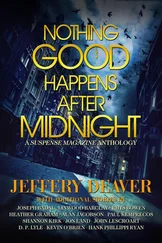“What’s that?” Kelly asked.
“Buddy here just showed me a present he got his girlfriend.” A chuckle. “Only I don’t know whether it’s more for her or for him.”
“One of those presents, yeah. All right, I’ve got the video.”
“Run it from a half hour before the killing to a half hour after. Scrub it. But look at what’s in front of the camera. Look at what’s reflected back toward it, in the windows of the vehicles driving past.”
“Reflected,” Kelly said absently. “Okay, I’m not seeing much, just the street at the base of the pole the security camera’s mounted — Christ.”
Again, the two men in Rhyme’s town house glanced each other’s way.
Cooper said, “Is it Yannis’s car pulling up, and him getting out?”
“It fucking well is. I can see him in some bus window’s reflections. Eight forty-eight. About ten minutes before his father died.”
Cooper gave him Rhyme’s explanation. “Yannis couldn’t park in his father’s driveway when he came back to kill him. Neighbors would see. He knew he could park on the street near the mall but wanted to be out of sight of the camera. The only place he could do that was directly underneath it.
“Later the son got into the shelter and planted the evidence implicating Xavier. I checked security and it’s basically nonexistent. Anybody could walk in and out.”
It had been Ron Pulaski who’d determined this.
“Damn. It’s a whole new case. My partner and me’ll jump on it...” There was some typing. “Okay, just got Yannis’s DMV picture. We’ll do some canvassing, check into his history with his father.”
Cooper read what would be the final note. “You want to send me the full file, I’ll take a look at the rest of the evidence. See if I can help shore up anything.”
“Hell, yes.” They heard some more typing. “Okay, it’s on its way. Hey, I can’t thank you enough. Clearing a case with the wrong suspect’s worse than not clearing it at all.” His voice drew conspiratorial. “Listen, Detective, I don’t know how this thing with Lincoln Rhyme’s going to fall out, but don’t worry, I won’t say a word you’re the one second-guessing him.”
“Kind of you, Detective Kelly. He can be pretty difficult.”
“That’s what I hear.”
Something about his face.
Weaselly.
In his native language, he thought: E keqe.
Evil.
Trouble.
The doorman was watching the tall redhead stride from the lobby of Whittaker Tower — or the “Stronghold,” which was how all the doormen around here thought of it. She walked through the police barricade set up to keep reporters back, though there weren’t as many as on a typical day. The word had spread that Mr. Whittaker and his son had left town.
The sixty-five-year-old wore a long gray coat and matching hat. The epaulettes were a little too much, like a faded senior military commander on trial in the world court, but they’d come with the uniform, so there they were.
The Whittaker doorman, Frank, whom he saw about a hundred times a day, wore blue. Frank had joked about the Civil War. It took a minute but he’d gotten it. Their uniforms, blue and gray. He was from Kosovo, and he knew there was only one civil conflict of note: the one in which your family was killed.
The redhead, who’d just departed the Whittaker building, was on her phone as she walked north on Park Avenue, oblivious to the world.
Oblivious to the weaselly man, e keqe , who followed her.
The doorman thought “trouble” because of the way the weasel had looked around, and, head down, slipped from the shadows where, it seemed, he’d been waiting for her.
He was slim, in a dark jacket and jeans, a backpack slung over his shoulder.
Coincidence?
Maybe, maybe not. When she crossed the street at a light, so did he, though not at the intersection. He dodged through traffic and wove between plants in the divider between the north and south lanes.
When Redhead got to the other side of the street, she kept going north.
Weasel Man did too. The doorman noticed that his hand was in his pocket.
Was she in danger?
When she turned east on 82nd, so did he.
Maybe he should call 911.
And tell them what?
That a man in dark clothing was following a woman in dark clothing on the Upper East Side of New York? He could tell the dispatcher about the man’s face. It too was dark. No, not a Black person. I mean, weaselly and evil.
The dispatcher would pause and ask if he could be more specific.
Ach, probably it was nothing, not worth a call, all that hassle.
Should he go and warn her himself? At this point it would mean a jog, and the ninety-kilo doorman certainly was not in the mood for that, not at this age, not with these bones.
Besides, he might lose his job if he did the good deed.
Fuck it.
Anyway, now he had to hold the door open for Mrs. Jankowski, who — even though her late husband owned a string of dental practices — tipped him five lousy dollars every Christmas.
The old kurvë...
Amelia Sachs continued along 82nd Street, cell pressed against her ear, noting how the buildings grew more modest with every block.
More deserted regarding passersby too.
Her nemesis — arthritis — had largely improved in recent years, but her mission now required her to walk briskly and she was feeling the pain in her left limb.
“No,” she was saying into the phone. “They’re not sure about the arraignment.”
At the corner of York Avenue and 82nd, she turned north and continued walking, though somewhat more slowly.
She approached a warehouse she knew. It was here, last year, she’d nailed a human trafficker and rescued three young women he’d smuggled into the country from El Salvador for a sex ring.
She looked the place over. It was much the same, though in better shape than then. Apparently it had been bought or rented by a coffee bean supply company. The scent on the air told her this without her seeing any product.
The loading dock was recessed and as she passed, she turned inside quickly, dropped the phone into her jacket and lifted her switchblade knife from her right hip pocket. Flicked it open and, counting to three, stepped out fast, grabbing the man who had been following her from Whittaker Tower.
Sheldon Gibbons, the reporter, gasped.
She held the knife up and spun him around.
“What the hell?”
“Quiet!”
She put the knife away, ratcheted on cuffs and turned him back to face her.
Eyeing him closely, she said, “I’m curious. Did you decide to call yourself the Locksmith? Or was that Joanna Whittaker’s idea?”
“Jesus. I don’t know what you’re talking about.”
Amelia Sachs frisked Gibbons and found only wallet, phone, keys and digital recorder.
She was explaining: “Something didn’t seem quite right. You just happened to know I was a cop at Whittaker’s building. And you just happened to be at Kitt’s?”
“I do my research. I know all the cops that’re media fodder. I don’t mean that in a bad way. The press like you. Former model turns detective! Good material. Inspiring for the young girls out there.” The words came rat-a-tat. “And at Kitt’s? I have a police scanner. I heard the call.”
This made some sense but she said, “I called Frontpage Media, the publisher of InsideLook. You don’t work there. The number on your business card goes to a burner. They’d never heard of you.”
“It’s helpful to have a publication’s label. I go undercover for my stories. Just like cops do. You’re accusing me of being the Locksmith and you didn’t even check my alibi.”
Читать дальше
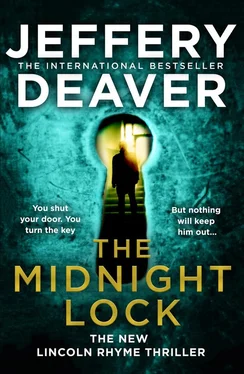
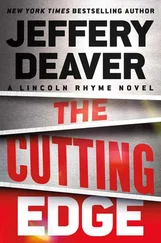




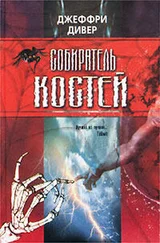
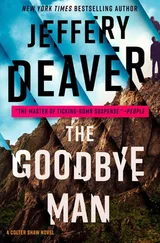
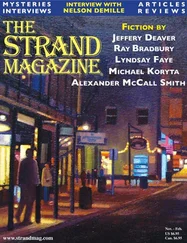
![Джеффри Дивер - Where the Evidence Lies [A Lincoln Rhyme Short Story]](/books/403782/dzheffri-diver-where-the-evidence-lies-a-lincoln-r-thumb.webp)


